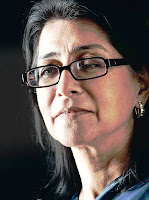RBI’s decision to maintain status quo on CRR and policy rates has
disappointed the industry and economists as they expected the apex bank to soften stands in view of moderation in
inflation numbers, which showed a 32-month low in November.
Maintaining
that RBI’s decision to leave policy on
hold has no immediate implications for the real estate sector, Simon Rubinsohn, Chief Economist of RICS, opined
that, “The RBI may have
disappointed some with its decision today to refrain from adjusting either the
CRR or the key repo rate but the guidance being provided by the authorities
clearly points to a shift in policy before too much longer.”
Pointing out that lending rates will remain little changed for the time
being for both commercial and residential borrowers, Simon Rubinsohn said, “However, broader developments will continue to shape
the picture in the construction industry including the announcement that real
estate developers are now in a position to raise up to $1bn through external
commercial borrowings to promote low cost housing projects. This, allied to the
prospect of cheaper money in 2013, should also send a positive signal to the
sector.”
Dubbing
the central bank’s status quo on keeping the bank rates unchanged as
“arbitrary” and “anti-growth”, apex developers’ body the Confederation
of Real Estate Developers Association of India (CREDAI) has called for
opening a dialogue with all stakeholders, including real estate
developers, before taking policy decisions that impact a cross section.
“It
is sad and unfortunate to see the RBI taking such a stubborn stand,
despite economic realities of the day,” said CREDAI national president
Lalit Kumar Jain.
 |
| RBI Governor
Duvvuri Subbarao
|
Asking
RBI to take measures to ensure that the interest rates are reduced irrespective
of tools it may choose to use, Rajkumar N Dhoot, President ASSOCHAM, said, “RBI
should have weighed on its mind that the WPI inflation has been certainly
showing signs of deceleration and it is set to come further down. On the other
hand, the surprise jump in the industrial growth has come about on a very low
base.”
 He
said enough of the policy tightening has been done in the past over two years
and a lot of economic growth has been sacrificed. "The RBI could have
chosen - either a drastic CRR cut or reduction in the repo rate - to send a
strong message among the banks that the interest rates are softening,"
said the chamber President.
He
said enough of the policy tightening has been done in the past over two years
and a lot of economic growth has been sacrificed. "The RBI could have
chosen - either a drastic CRR cut or reduction in the repo rate - to send a
strong message among the banks that the interest rates are softening,"
said the chamber President.
Commenting on the RBI’s decision to
maintain status quo on CRR and policy rates, Naina Lal Kidwai, President of FICCI, said “While disappointing, the
status quo is as was widely expected. The recent moderation in inflation
numbers, particularly non-food manufacturing at 4.5% in November 2012, a
32-month low, should provide the central bank comfort to begin to consider a
rate cut early in the year 2013, as also imported inflation which reveals a
decline to 6.5% in November 2012 (13.8% in November2011)".
 Clearly inflation still remains high
for comfort and easing of supply side restrictions and policy are imperative to
bring this down. The wide current account deficit also remains a constraint on
monetary policy easing. There is some scope for monetary policy easing next
year assuming that inflation risks recede and that there is sufficient progress
on fiscal consolidation and structural reforms.
Clearly inflation still remains high
for comfort and easing of supply side restrictions and policy are imperative to
bring this down. The wide current account deficit also remains a constraint on
monetary policy easing. There is some scope for monetary policy easing next
year assuming that inflation risks recede and that there is sufficient progress
on fiscal consolidation and structural reforms.
The FICCI president added, "There has been a visible slowdown in
bank credit to industry (15.2% in October 2012, a decline from 20% in the
beginning of the current fiscal). The government has begun to take steps to
reverse the present decline by announcing some key policy reforms. With the
inflation numbers showing a decline and the global economy still in a difficult
situation, industry is crying out for an impetus for investment and growth and
lower interest rates would be oxygen to the sentiment which is beginning to
turn positive.”
No comments:
Post a Comment